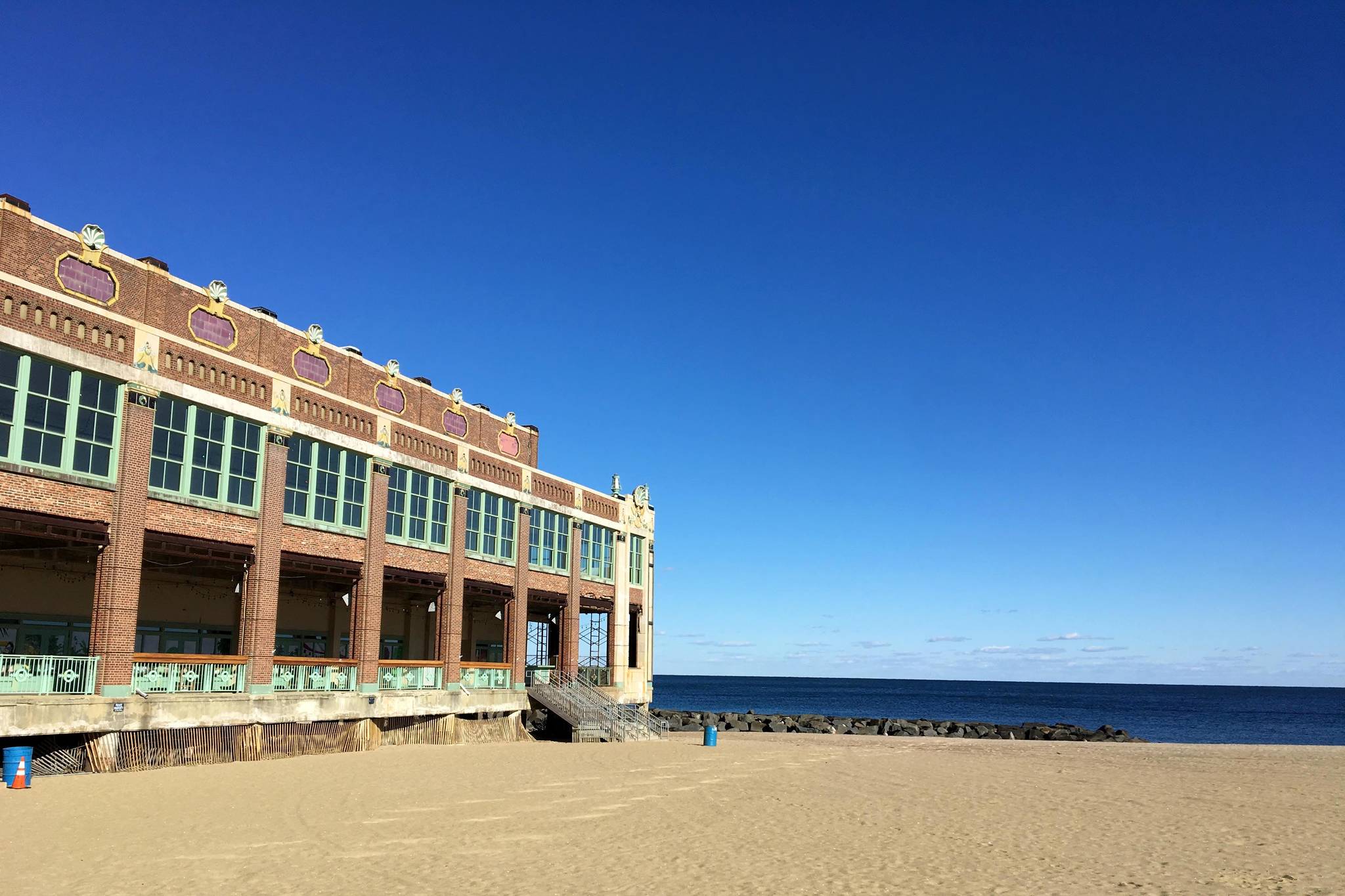“What are you going to write about for your column this week?”
I’m spending two weeks visiting my parents in New Jersey and my mom has asked me this question almost every day. While I type this out on the couch next to her I can feel her getting nosier and nosier. In typical mom fashion, she likes to be abreast of everything that I do, constantly.
“Why don’t you write it about fishing with your father the other day?”
“Write it about your run on the boardwalk today.”
“What if you write it about Asbury Park?”
You’d think that after two weeks visiting my parents and staying with them in my childhood home, her constant questions would get to me less. I’ve realized, though, that with 26 years and an entire continent between us, it’s only gotten worse.
“What’s the temperature there? When you go running, do you bring one of those satellite phones? When you’re on a mountain, you always have a friend with you, right? Have you run into any bears recently? Do you have a bear spray? Do you have a gun? Did you win that ski race? (No, mom, I never win.) What about moose? Have you skied near any moose? Is that dangerous? Is it snowing in Seward yet? (Mom, for the millionth time it’s Soo-ward not See-ward.) What’s the temperature? What are you doing tomorrow? What are you doing next week? What are you doing right now? What are you doing with the rest of your life? Do you have a boyfriend? Was that a picture of you swimming? Why are you swimming in Alaska? Is it cold? What’s the temperature?”
So, when my mom asked me what I was going to write about this week I told her.
“I’m thinking maybe I’ll write it about Nalgene water bottles.”
I could feel her disappointment fill the room as she mumbled, “Hmm. OK. That’ll be nice.”
Oh, how the tables have turned — now I’m the one seeing through her lies. But why should we just turn the tables? Let’s flip them.
Another thing I’ve realized after spending a lifetime with my mother is that her (and my father’s) job has been to make me happy. (They did a pretty good job.) And now my job is writing this column, so I might as well make her happy while I do it.
So, this one’s for you mom.
My father and I went fishing for black sea bass off the coast of Manasquan Beach in New Jersey last Saturday and all I could think about were the wrecks on which we were anchored. New Jersey’s Division of Fish and Wildlife maintains over a dozen artificial reefs along the coast. Right out of the Manasquan Inlet, there are some sunken tugboats, banana barges, Army tanks and more.
And now, over the radio on my father’s boat, we can talk to other fishermen and say, “The banana barge has a bite, but there’s too many people on it today,” or, “I’m going to anchor up on the tug.”
And although we’re far above the reefs, our sinkers fly down to the nooks and crannies that are filled with life. The sea bass nibble and nibble on the frozen clams wrapped around our hooks, but you have to wait for that one big bite that locks them on before setting the hook. And once you do, it’s a long way back up to the top to see what the sunken tugboat has to offer.
From the deck of my father’s boat you can see the shore lined with boardwalks, but not the ones of MTV’s Jersey Shore fame. In October, they’re quiet and the perfect venue for a run.
After a summer of running along the trails and through the mountains of Alaska, it was nice to hit the boardwalk. I didn’t have to prepare myself for a big climb or keep my feet light to avoid roots. I just ran.
And I ran all the way to Asbury Park, running slowly as I took in all the changes the shore town has seen since I moved. I ended up at my favorite spot by the memorial for the S.S. Morro Castle and Asbury Park Convention Hall.
The cruise ship Morro Castle was on a return voyage from Havana to New York City in 1934 when it mysteriously lit ablaze, killing 137 of the 549 passengers.
The fire, which started in the early hours of the morning, ravaged the ship because of its design, materials and some ill-timed Nor’easter winds and storm conditions.
The poor conditions didn’t stop local fishing boats from leaving their docks and pulling passengers who had jumped from the fiery ship into the stormy waters while lifeboats began landing all along the coast — four boats on the beach in Spring Lake, two in Sea Girt. But the Morro Castle’s final stop? Asbury Park Beach, just barely missing a collision with Convention Hall, as the ship dug herself into the sandy bottom.
There’s more to that story, but I’m out of words and my mother keeps looking at me.
“Are you done writing about Nalgene water bottles yet?”
Kat Sorensen is a writer living in Seward.

